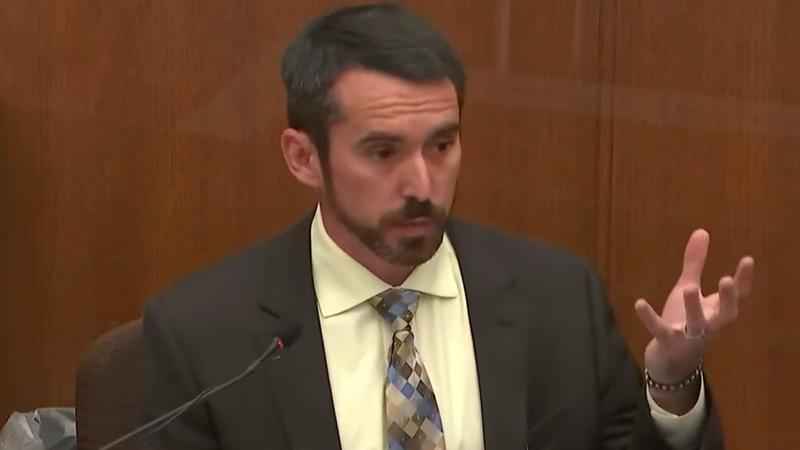Police use-of-force expert says ‘deadly force was not appropriate’ in Potter trial
[anvplayer video=”5078033″ station=”998122″]
A national police use-of-force expert on Wednesday testified that former Brooklyn Center Police Officer Kimberly Potter wasn’t justified in using deadly force on Daunte Wright.
Seth Stoughton, an associated professor at the University of South Carolina School of Law and a nationally known police use-of-force expert — who also testified in the trial of former Minneapolis police officer Derek Chauvin — testified that "the use of deadly force was not appropriate and the evidence suggests that a reasonable officer in Officer Potter’s position could not have believed that it was proportional to the threat at the time."
Stoughton explained that Sgt. Mychal Johnson, by leaning into Wright’s vehicle, was at risk of being dragged, injured or killed since he was partially in the vehicle but never faced an actual threat because he prevented Wright from operating the car and then quickly got out as Potter threatened to use her Taser.
Some discussion was had about whether Potter knew Johnson was in the vehicle when Potter fired the gunshot but Stoughton explained that even if Potter knew Johnson was in the vehicle and then got out, deadly force "still would have been inappropriate because of the proximity of two other officers and the passenger."
He also explained that Wright’s position in the vehicle made him likely to be able to easily operate the vehicle and should’ve discouraged the use of a firearm or Taser because of the potential to create an "unguided hazard."

Seth Stoughton, associate law professor at the University of South Carolina, testifies in the trial of former Brooklyn Center police Officer Kim Potter on Wednesday, Dec. 15, 2021.[Court TV via AP, Pool]
Additionally, the state asked Stoughton about cases of weapons confusion and he testified there have been less than 20 instances of weapons confusion since 2001 — and between nine and 12 of those involved cases where the Taser and firearm were carried on the officer’s same side.
Defense attorney Earl Gray intensely questioned Stoughton but seemingly wasn’t satisfied with the explanations he offered in his answers, as Gray asked Stoughton multiple times to reply only with a "yes" or "no" and Stoughton at one point countered that he "can’t fairly answer" in a single word.
KSTP’s complete trial coverage
His testimony came after Sgt. Mike Peterson, who testified Tuesday afternoon about Potter’s training and Taser, was cross-examined by the defense and re-questioned by the state. Peterson noted that officers have to make split-second decisions and, when asked by the state if that’s what training is supposed to help with, said, "We do not deal in absolutes because no incident in this world is ever forecasted."
While Peterson agreed with many of the defense’s questions about Potter’s record, officers’ tough decisions and their discretion in their work, he also agreed that officers have to take their surroundings and potential collateral damage from their actions into account.
Also on Wednesday, defense attorney Paul Engh animatedly argued that Stoughton’s testimony opened up the door for the defense to talk about Wright’s past attempts fleeing police.
Engh went so far as to tell Judge Regina Chu, "You either have to correct it or, if your ruling is that we can’t ask about it, I have to move for a mistrial and we will come in after the break with a thick packet and I’ll make an offer proof on every time this kid has run away and not been found."
After Chu took some time to review the law, she determined Potter would’ve had to know about those past attempts to flee.
Finally, Wright’s father, Arbuey Wright testified for about 10 minutes before jurors were excused for the day.
Chu and the attorneys stayed late to work out a few motions after jurors left.
The state is expected to rest its case on Thursday with the defense then calling its first witnesses.
Court is scheduled to reconvene Thursday at 9 a.m.
Click here to read more in-depth notes or watch Wednesday’s proceedings.